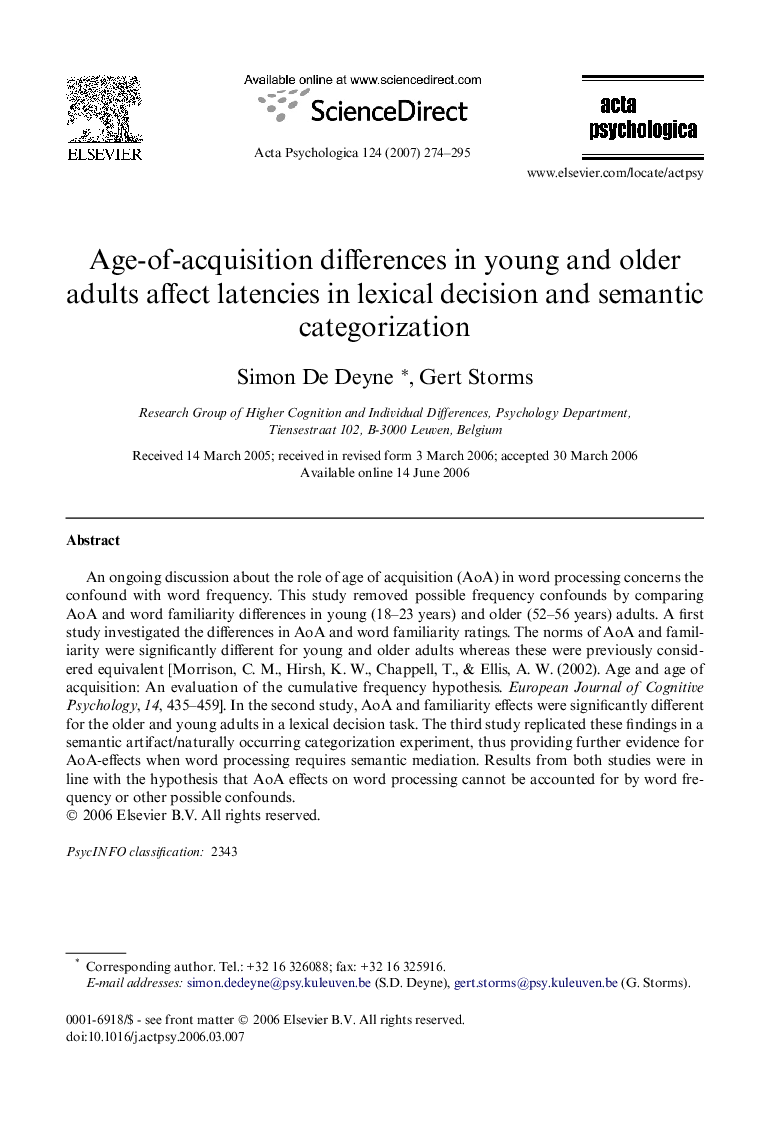| Article ID | Journal | Published Year | Pages | File Type |
|---|---|---|---|---|
| 920620 | Acta Psychologica | 2007 | 22 Pages |
An ongoing discussion about the role of age of acquisition (AoA) in word processing concerns the confound with word frequency. This study removed possible frequency confounds by comparing AoA and word familiarity differences in young (18–23 years) and older (52–56 years) adults. A first study investigated the differences in AoA and word familiarity ratings. The norms of AoA and familiarity were significantly different for young and older adults whereas these were previously considered equivalent [Morrison, C. M., Hirsh, K. W., Chappell, T., & Ellis, A. W. (2002). Age and age of acquisition: An evaluation of the cumulative frequency hypothesis. European Journal of Cognitive Psychology, 14, 435–459]. In the second study, AoA and familiarity effects were significantly different for the older and young adults in a lexical decision task. The third study replicated these findings in a semantic artifact/naturally occurring categorization experiment, thus providing further evidence for AoA-effects when word processing requires semantic mediation. Results from both studies were in line with the hypothesis that AoA effects on word processing cannot be accounted for by word frequency or other possible confounds.
